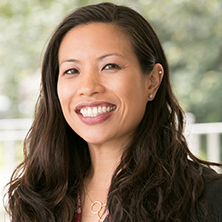VP and AVP of Student Affairs Featured in Synergy Magazine for Diversity and Inclusion Work at Seton Hall
Tuesday, December 8, 2020

In Synergy, Cooper-Gibson and Burnette published "Transforming Campus Partnerships to Foster Inclusion & Belonging."

Cooper-Gibson and Burnette write:
As we continue to grapple with civil unrest across our national cities and towns, higher education institutions are in the middle of two major pandemics— COVID-19 and racial injustice. As universities continue to respond to the threat of COVID-19 higher education must also help lead society to overcome and condemn racism and violence. A sense of inclusion and belonging is vital for healthy campus communities, increased student success, and the training of global leaders (Strayhorn, 2012). An engaged, supportive campus climate requires a deep focus on diversity, inclusion, and equity (DEI) to improve positive college outcomes and a sense of belonging for faculty, employees, and students (Kuh et al., 2011; Tinto, 2010). Both a nurturing campus climate and sense of belonging are key factors in employee and student satisfaction and persistence (Bess & Dee, 2012).
At Seton Hall University in New Jersey, our Catholic mission is one of peace and justice, recognizing the dignity of all. This summer, as many of us were entrenched in our response to the global pandemic, Seton Hall senior leadership also acknowledged the need for accelerated action to enhance our campus DEI efforts.

In July 2020, the DEI Committee hosted its first integrated four-hour virtual retreat for Committee members. The purpose of the retreat was to align goals with the University's vision to cultivate and nurture a trusting and collaborative community to advance DEI on campus and beyond. The retreat provided a time for dialogue and self-reflection and focused on increasing cultural competency and engaging with difference, while building strong partnerships and enhanced campus collaboration. Participants listened and shared personal experiences, identified current strengths and opportunities within their departments, developed micro-strategies and action steps, discussed best practices, and generated ideas for assessment and evaluation. The DEI Committee used Microsoft Teams to facilitate the event. "Channels" were used to host two concurrent breakout sessions, and the Committee encouraged the use of the "chat" and "hand" functions for participants to raise questions, enable comments, and enrich the discussion. Note-takers and facilitators were designated throughout the retreat for accountability and organization. Collaboration "There are areas for collaboration within the institution, and we are working diligently to address them in a synergistic way." - Participant’s response in post-retreat assessment Researchers suggest a supportive campus climate that fosters belonging and inclusion "does not exist in a vacuum or [is] independent of other policies and practices" (Kuh et al., 2010, p. 242). Campus collaboration is essential to provide a supportive campus environment, and the benefits of organizational collaboration include greater productivity and coordination (Kanter, 1994). Synergistic partnerships between campus constituents, including academic and student affairs, is vital to building DEI efforts and a supportive campus environment. Forty-six faculty, administrators, staff, and students participated in the DEI Virtual Retreat. Participants included undergraduate and graduate students, new and seasoned staff, College deans, 12 department chairs, institute directors, tenured and adjunct faculty, Executive Cabinet, and administrators from across the University, including the Offices of the Provost, Enrollment Management, Campus Ministry, and Student Services.
Read more about the virtual retreat as well as some of the diversity, equity and inclusion initiatives at Seton Hall that have sprung from those meetings in "Transforming Campus Partnerships to Foster Inclusion & Belonging," (p.10).
Categories: Campus Life






